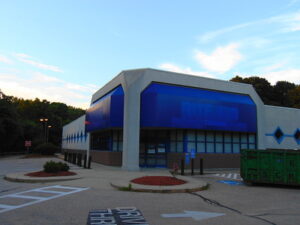I recently read an article about the new president of Eastern Washington University. EWU, located near Spokane, has an enrollment of about 11,000 students. According to the article, Dr. Shari McMahan made a point of visiting local business owners to find out what EWU could do to meet their employment needs and prepare EWU students for the workforce.
I see this as a classic mistake and one that should deeply concern EWU students. I say this because community colleges do this all the time. So, what is the mistake in taking this approach?
First, the failure rate among businesses is astounding. In the first year of operation, 20% of new businesses will fail. By the five-year mark, 50% of businesses will no longer be operational. Two-thirds of businesses will never make it to the 10-year mark. Only 25% of businesses will still have their doors open in 15 years.
Relying on business owners to identify their needs is pointless because clearly, they do not know. Their extraordinarily high failure rate over a relatively short time attests to that. And any college or university that bases strategic or operational decisions on community business owners’ dimly lit assessment of what they need only invites chaos into the lives of its students, its alumni, and its community.
Second, the idea that Job Number One is to take the temperature of local business owners ignores one simple fact: students pay a lot of money to attend a university. Business owners do not. The students – not the business community – are the primary customers in this scenario. Tailoring their academic programs to the needs of their profession , rather than the needs of their here-today-gone-tomorrow employer is the only correct and viable strategy for a higher education institution.
Business owners should not dictate academic programs
Here is why: one of the simplest explanations for why businesses fail is money. Or more to the point, lack of money. Most new businesses are undercapitalized from the start, so business owners need to focus intently on generating capital. And they cannot just generate the capital they need to operate. They also need to generate capital to grow. The focus on revenue-generation leads new businesses away from long-term strategies. (When you are drowning in expenses, it is hard to think about the long term.)
To accommodate unexpected revenue conditions, like slow income generation, business owners “pivot” to whatever looks good. This cycle may continue for months or years. The sole goal of these seismic shifts is survival, and they occur whenever the business frantically re-assesses its needs.
College and university academic programs cannot “pivot” nearly as fast as a nervous business owner can. Institutions simply cannot operate academic programs that turn on a dime, so they should not try. And do not mistake these gyrations for “agility.” Turning to business owners to determine their instantaneous need is a clear-cut case of the blind leading the blind.
Focusing on the skills the profession requires gives the student a solid foundation in their chosen field of study. When higher education institutions focus on the larger and slightly fuzzier target of profession requirements in academic program design, employers will find what they need. Guaranteed.
When higher education institutions focus primarily on the needs of myopic employers, they will bring ruin not only to the institution’s students but to their own reputations, and to the community at large.
Photo Credit: Kevin Lawver , via Flickr

















